I believe this imaginative reenvisioning is key to breaking open the complex work that must be done to reverse climate change. As a society, we don’t pay attention to the small objects that surround our day. Most of us buy things and dispose of them almost without thought. It isn’t just carelessness; we are compelled by advertising and planned obsolesce to consume and dispose without imagining where the object came from or where it will go when we are done with it. We were raised to demonstrate our own value through the value of the objects that surround us, and that means regularly buying new things for ourselves and our loved ones to show we value ourselves and others.
If climate change is a result of our cultural values, then it follows that we can fight it by reevaluating those values, by championing the future over the present, the givers over the takers, and the collective over the individual. Inherent in object puppetry is a sense of cosmic equality: every object can become the protagonist in its own story. Once an audience accepts this, they can begin to undermine the prevalent assumption that humans are the inalienable protagonists in the story of planet Earth.
Glass Half Full Theatre’s productions often point out that humanity (more specifically, dominant Western culture) hasn’t been the best steward of the planet, and that humankind’s current pattern of behavior does not indicate that we’re well suited to saving the planet. Many of our company’s futurist narratives include the demise of humanity and the survival of a resilient Earth. Our intent is not to be pessimistic. Rather, we provoke audiences to defend humanity’s place on Earth through a reevaluation of lifestyle.
While not all individuals are responsible for this crisis, we must all be responsible for its resolution if we want to stay in it at all.
Another of our shows, The Global Arena, features WWF-style wrestlers representing climate change solutions (“Carbon Capture,” “Alternative Energy,” “Rubber Man”) fighting against “Mz. (mass) Extinction” to save the planet. It’s exhilarating to participate in a live theatre experience where the audience is yelling and screaming in support of lifestyle change, propping up the potential solutions against the seduction and ease that is represented by Mz. Extinction. Audiences leave the experience pumped up, looking for action and accountability, rather than depressed by the statistics that occasionally make even the staunchest environmentalist want to curl into a ball and sob.
We want people to feel energized, to be reminded of what we are fighting for. We don’t want audiences to feel judged or that we are somehow holier-than-they for caring about these things. To that end, we are trying to set impossible goals with the likelihood that we will fail miserably and publicly. We plan to produce a show this season with a zero-dollar materials budget. It will mean more time, more labor, more creating, but we’d rather put every cent we can into the hands of the creators and performers, and openly show how much harder it is to avoid buying new. When we fail, because we break down and buy batteries, or gaffe tape, or lighting gels, we’ll share our failures audaciously on social media and as part of the show.
Climate change is such a monumental problem that it can feel like we’ve all already failed, and nothing can be done. So let’s be open about striving hard and failing big. Our cultural narrative is full of characters we love and admire who achieve glory in striving for the impossible. It’s Don Quixote tilting at giants, Luke confronting Darth, David fighting Goliath. It’s time to get comfortable with the likelihood of failure, and practicing terrifying realities onstage is the dominion of the theatre artist.

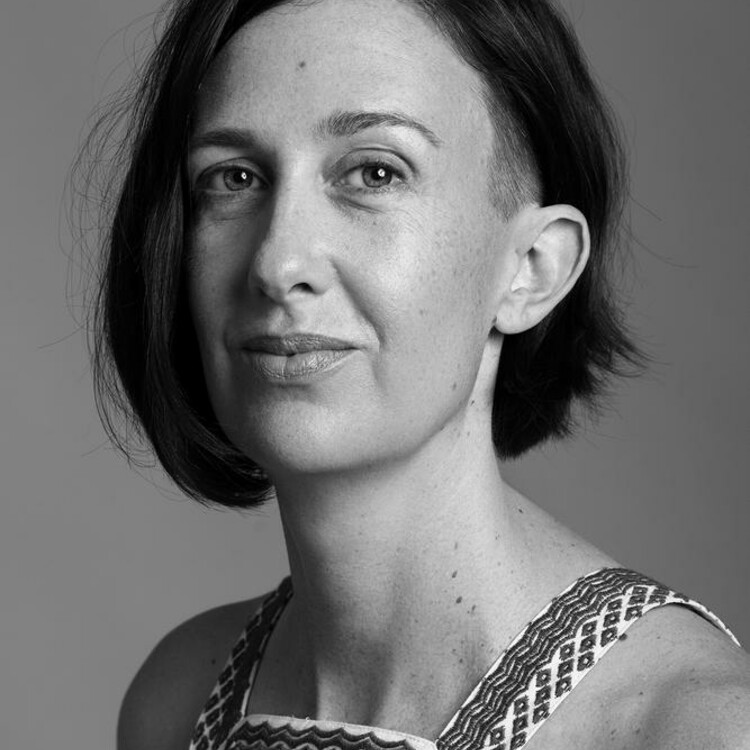
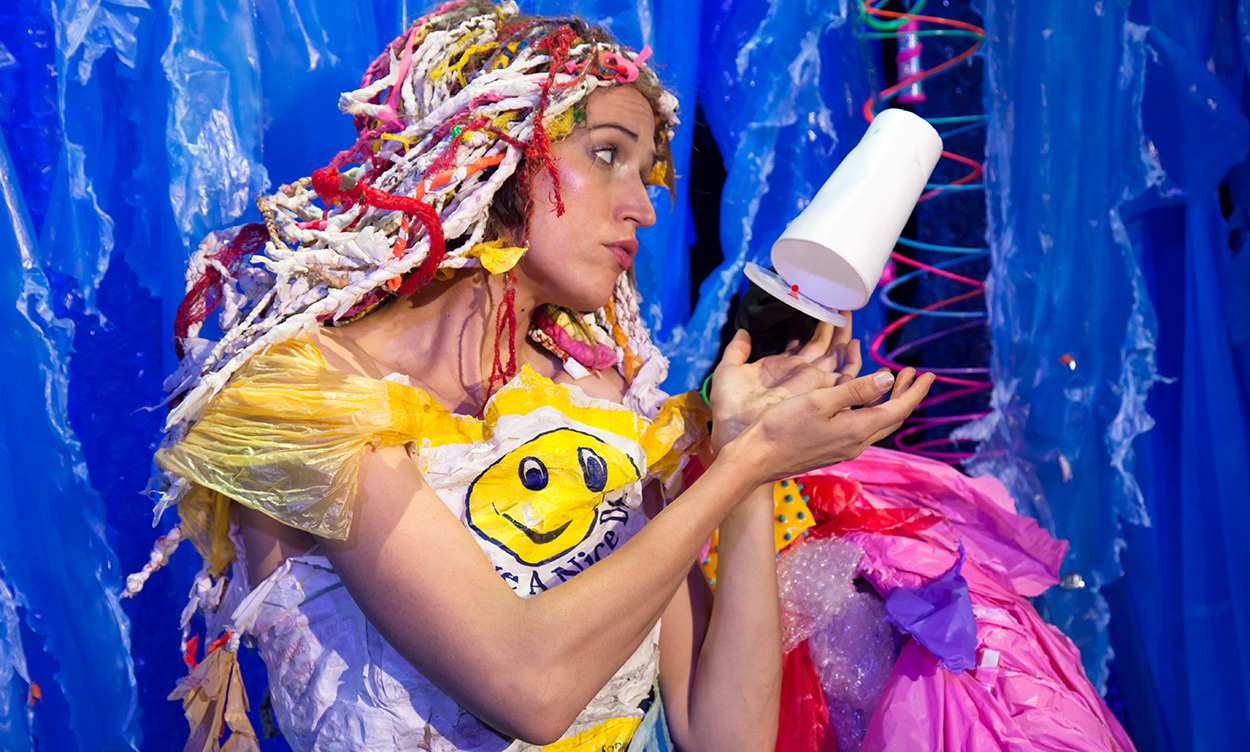
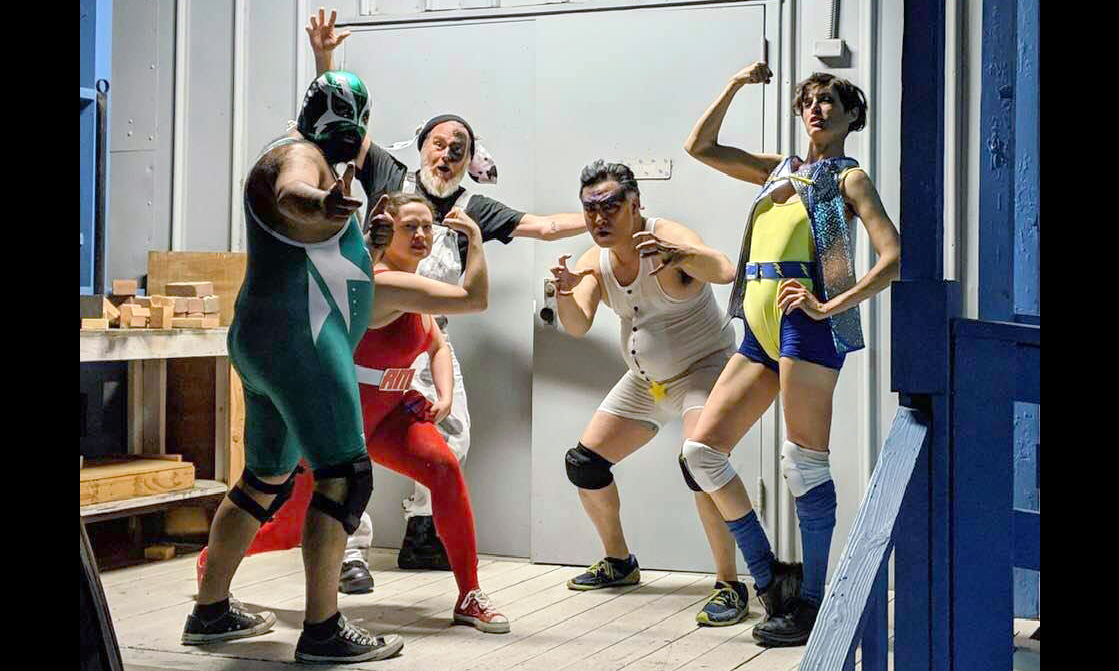
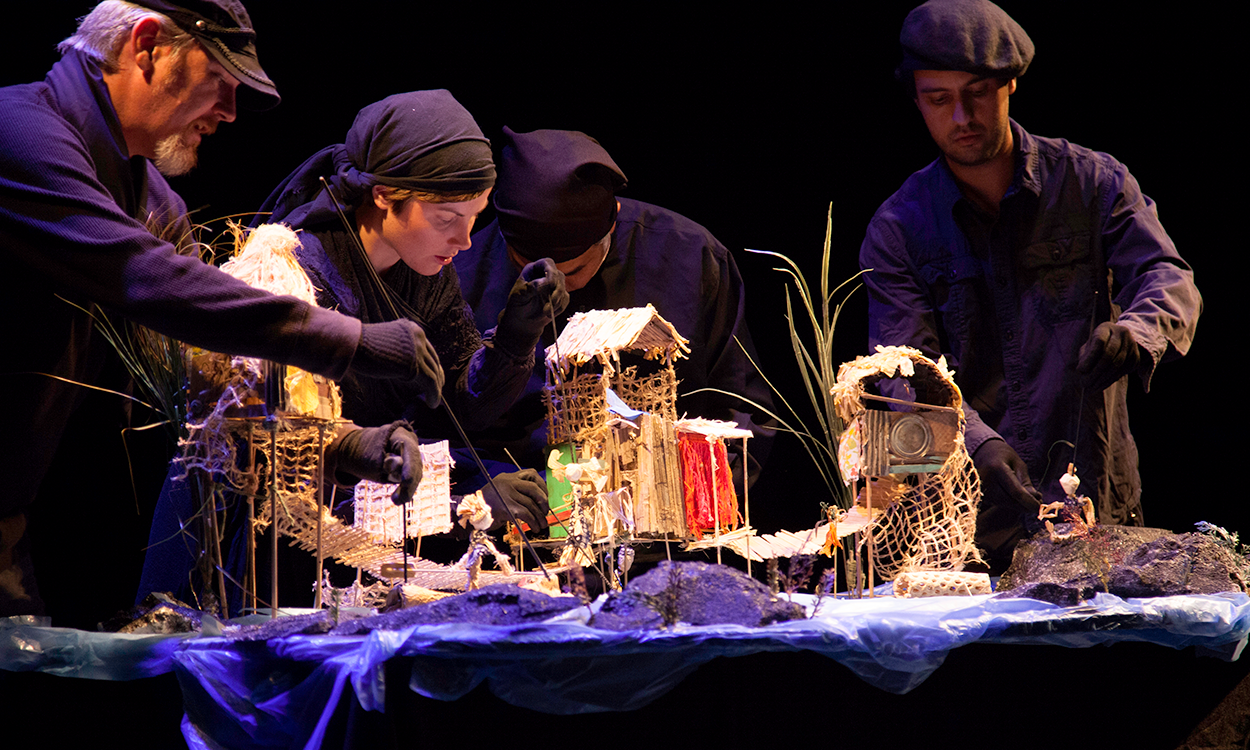

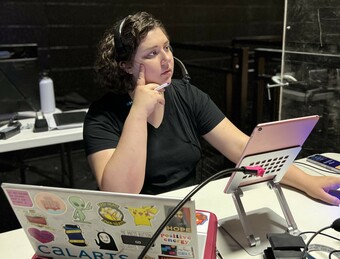

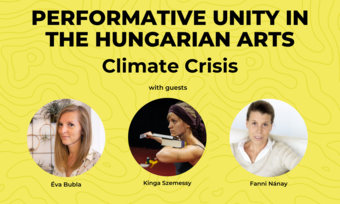





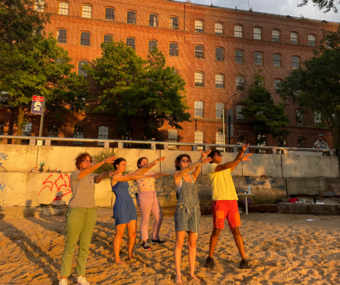

Comments
The article is just the start of the conversation—we want to know what you think about this subject, too! HowlRound is a space for knowledge-sharing, and we welcome spirited, thoughtful, and on-topic dialogue. Find our full comments policy here